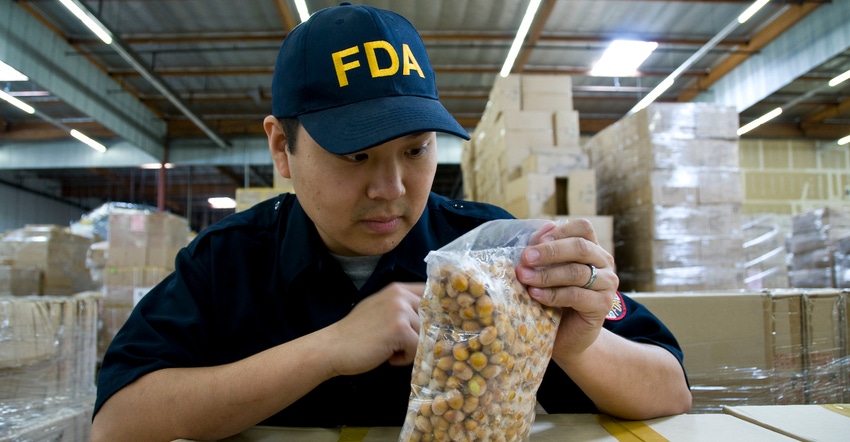The federal agency said the new guidelines outline proactive steps companies can take before recalls occur.
March 3, 2022

The US Food and Drug Administration issued finalized guidance Thursday to help companies prepare to quickly and effectively remove violative products from the market. The guidance describes steps companies should take, before a recall is necessary, to develop recall policies and procedures that include training, planning and record-keeping to reduce the time a recalled product is on the market and, thus, limit the public’s exposure to risk.
“Voluntary recalls continue to be the fastest, most effective way for a company to correct or remove violative and potentially harmful products from the market to help keep consumers safe,” said Associate Commissioner of Regulatory Affairs Judith McMeekin, Pharm. D. “It is critical that all companies in the supply chain are 'recall ready' to ensure appropriate actions are taken swiftly across the distribution channels to best protect public health and the integrity of the supply chain. We will continue to work with companies to improve their recall procedures and minimize Americans’ exposure to potentially harmful products.”
A voluntary recall is an action taken by a company to correct a violative product or remove it from the market. A recalling company may act on its own initiative or the FDA may inform the company that a distributed product violates the law and recommend the company recall the product. The FDA has the authority to require recalls of certain products in particular circumstances, such as controlled substances, biological products, human cells, tissues and cellular and tissue-based products, medical devices and foods.
The final guidance, Initiation of Voluntary Recalls Under 21 CFR Part 7, Subpart C, explains how companies should have adequate product coding and maintain distribution records to facilitate faster, more accurate recall actions, which the FDA recommends that all companies do. It encourages recalling companies to use electronic communications to quickly identify and provide certain product information when alerting consignees and the public about a voluntary recall.
The guidance also urges companies to act quickly to initiate a recall when public health is at risk and to do so prior to completing an investigation into the cause of the problem. Because recalls can affect the entire supply chain, including downstream suppliers, wholesalers or vendors, the FDA recommends that companies develop recall procedures to quickly inform their entire distribution chain, so consignees can rapidly identify affected lots and recall downstream products when necessary.
This latest action reflects the agency’s ongoing commitment to work closely with companies so they can quickly act to protect the public from violative products on the market. In recent years, the FDA has made proactive and systemic improvements to recall processes, including issuing guidance on public availability of lists of retail consignees to effectuate certain human and animal food recalls; mandatory recalls for human and animal foods; and public warnings and notifications for all FDA-regulated products, which reiterates a policy to rapidly post new recalls to the FDA’s weekly Enforcement Reports, a public listing of all recalls monitored by the FDA.
About the Author(s)
You May Also Like




